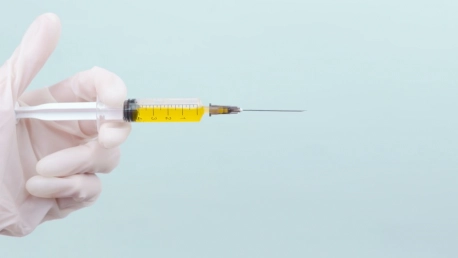The COVID-19 pandemic has caused significant disruptions worldwide, altering people’s lifestyles and forcing industries to adapt. Despite the fact that the healthcare crisis has ended, its impact continues to reshape various sectors globally. Businesses have recognized the importance of establishing an online presence, the number of social media users keeps growing, while governments know more about pandemic preparedness. However, one of the most important lessons of the pandemic is the fact that vaccine research and development is more important than ever before.
According to the World Health Organization (WHO) Director-General Tedros Adhanom Ghebreyesus, COVID-19 remains an ongoing health issue, but it does not represent a public health emergency of international concern anymore. According to CNN, Tedros further explained that the healthcare crisis has been on a downward trend for more than a year. “This trend has allowed most countries to return to life as we knew it before COVID-19,” he added. President Joe Biden took a similar stance by signing legislation to end the national COVID-19 emergency earlier than anticipated. Nonetheless, while the pandemic itself may be over, its lessons continue to shape our future.
Why Does the FDA Still Recommend Booster Shots?
Although the WHO announced the end of the COVID-19 pandemic, the Food and Drug Administration (FDA) has authorized another COVID-19 booster. The federal agency has amended the emergency use authorizations issued for the Moderna and Pfizer-BioNTech COVID-19 bivalent mRNA vaccines to facilitate additional doses for the elderly and individuals with weakened immune systems before the upcoming fall vaccination campaigns. In a recent news release, the FDA specified that people who have been previously vaccinated with a monovalent COVID-19 vaccine, those aged 65 and above, and unvaccinated immunocompromised individuals are eligible for a booster shot.
Moreover, infants aged 6 months and older and children under 5 years of age who have not been vaccinated may also receive a two-dose series of the Moderna bivalent vaccine or a three-dose series of the Pfizer-BioNTech bivalent vaccine. Peter Marks, M.D., Ph.D., director of the FDA’s Center for Biologics Evaluation and Research, emphasized that the virus continues to pose a serious risk, and the FDA aims to encourage people to keep their vaccination up to date. “The available data continue to demonstrate that vaccines prevent the most serious outcomes of COVID-19, which are severe illness, hospitalization, and death,” he added.
The World’s First RSV Vaccine
Respiratory syncytial virus (RSV), similar to COVID-19, affects the lungs and the respiratory conducting passages, causing symptoms akin to those experienced during a common cold. And just like COVID-19, RSV can be dangerous. According to the National Institutes of Health (NIH), the symptoms of the infection are usually mild and resolve with no treatment within a week. Nonetheless, vulnerable populations—including premature infants, children suffering from chronic lung disease or congenital heart disease, and individuals over 65—, can experience severe symptoms or even death.
In light of these risks, the FDA approved GSK’s vaccine against RSV, which will be sold under the name Arexvy. Designed for individuals aged 60 and older, Arexvy is the world’s first RSV vaccine. According to GSK, it has been proven to decrease the risk of developing lower respiratory tract disease by 82.6% in people aged 60 and above. Moreover, data indicates that the vaccine lowers the risk of developing a severe form of the disease by 94.1%. Similar to the COVID-19 vaccines developed by Moderna and Pfizer-BioNTech, Arexvy has the potential to effectively combat a significant threat.
Vaccine Research and Development Is Still Crucial
Building upon what CNN considers to be a “pivotal discovery,” Arexvy is just one of the vaccines that could help prevent future healthcare crises in the United States, or at least mitigate their impact. At least three other RSV vaccines are currently in development, offering hope in the battle against this serious disease. The FDA is expected to make a decision regarding Pfizer’s two RSV vaccines by the end of the year. After all, this could prove to be one of the most important lessons of the COVID-19 pandemic in 2023 and beyond: vaccine research and development is still extremely important.









